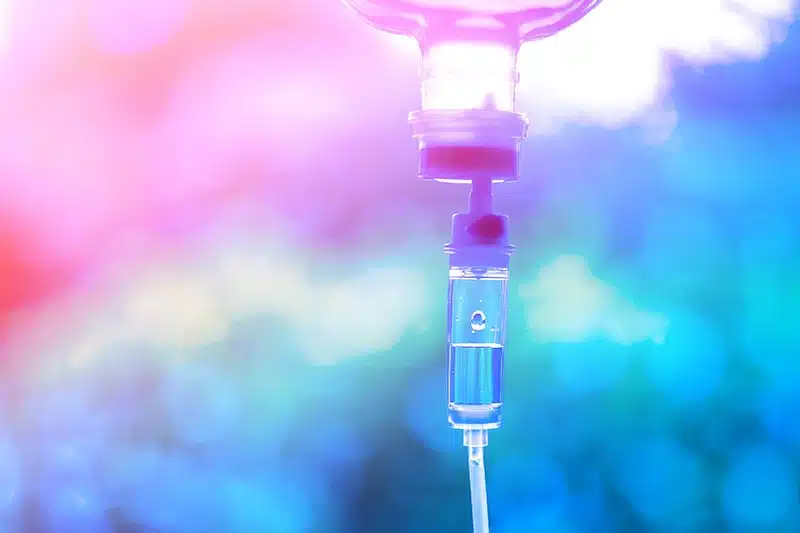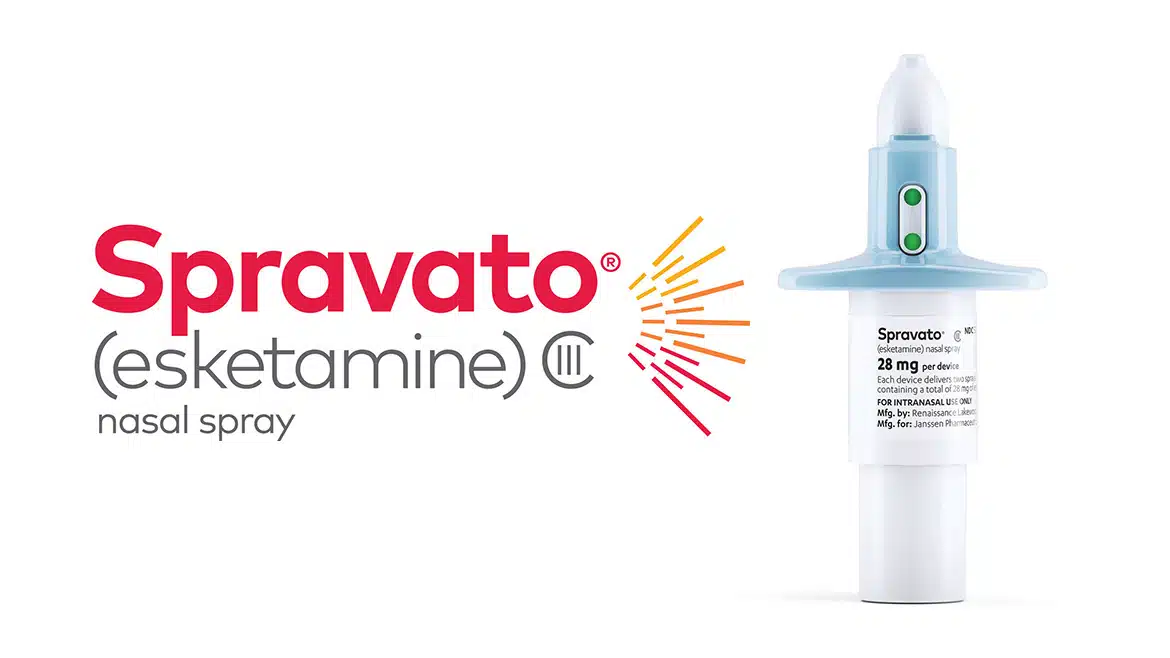Introduction
A Brief Overview of Depression and Its Impact on Society
Depression is a common, yet serious, mood disorder that significantly impacts the way an individual feels, thinks, and behaves. It’s not just about feeling sad or having a bad day; depression is a chronic struggle that can make even the most mundane tasks seem overwhelming. Globally, depression affects more than 264 million people across all age groups. It’s a leading cause of disability worldwide and contributes substantially to the overall global burden of disease. Depression can lead to a variety of emotional and physical problems, drastically reducing a person’s ability to function effectively in their daily life.
Introduction to Ketamine Infusion Therapy and Its Potential as a Depression Treatment
In the quest to treat depression, healthcare providers and researchers have explored various medications and therapies. One of the substances that has shown promising results in recent years is ketamine. But, what is ketamine?
Ketamine was initially developed in the 1960s as an anesthetic for surgeries. It has been used extensively in veterinary medicine as well as in human medicine, particularly in situations where other types of anesthetics cannot be used. However, its potential goes beyond anesthesia. Recent studies suggest that ketamine might be a powerful treatment for depression.
The use of ketamine for depression represents a significant shift in the treatment of this debilitating disorder. The potential of ketamine lies in its ability to provide relief from symptoms much faster than traditional antidepressants, often within hours rather than weeks. Moreover, ketamine has shown effectiveness in patients who have not responded to other depression treatments, categorised as treatment-resistant depression. This potential breakthrough treatment is changing lives, offering hope to those who previously had none.
Understanding Ketamine
History and Medical Uses of Ketamine
First synthesized in the 1960s, ketamine has a long and varied history in medical use. Initially, it was developed as an anesthetic for use in surgeries. Because of its unique properties, such as the ability to provide pain relief and induce a trance-like state without suppressing breathing, ketamine quickly became an essential tool in the field of anesthesiology. Over the years, it has been particularly valued in war zones and in resource-poor areas where sophisticated breathing equipment is lacking.
Aside from anesthesia, ketamine uses have expanded over time. Its potential as a rapid-acting antidepressant has sparked a flurry of research and clinical trials. Today, ketamine is being used not just for treatment-resistant depression, but also for managing conditions such as chronic pain, post-traumatic stress disorder (PTSD), and certain anxiety disorders.
Explanation of Ketamine's Mechanism of Action
Understanding ketamine’s mechanism of action or ketamine MOA is crucial in appreciating how this substance may combat depression. Unlike traditional antidepressants that increase the levels of mood-enhancing chemicals in your brain, ketamine works differently. It is an NMDA receptor antagonist, meaning it blocks these receptors in the brain.
When the NMDA receptor is blocked, it increases the amount of a neurotransmitter called glutamate in the spaces between neurons. This then triggers the release of other molecules that help neurons communicate with each other along new pathways. This process, known as synaptic plasticity, is thought to be important for learning, memory, and mood regulation. The increased glutamate activity promotes the formation of new neural connections, essentially helping the brain to rewire itself. This rewiring may lead to improved mood and a reduction in depressive symptoms.
It is important to note, however, that while we understand some of the broad strokes of how ketamine works, there is still much to learn about this fascinating substance. Researchers are working diligently to uncover all the ins and outs of its anti-depressant effect, with the hope that this will lead to even more effective treatments in the future.
What is Ketamine Infusion Therapy?
Detailed Explanation of Ketamine Infusion Therapy
In the field of psychiatry, ketamine infusion therapy is an innovative treatment approach especially for those who have not responded to conventional therapies for conditions such as depression, anxiety, and PTSD. As its name suggests, it involves the administration of ketamine, but not in the ways it was traditionally given. Instead of being used as an anesthetic in high doses, ketamine infusion therapy employs much lower, sub-anesthetic doses of the drug.
What is ketamine infusion, you might ask? It refers to the procedure of slowly administering ketamine into the bloodstream over a period of time, typically ranging from 40 minutes to a few hours. This controlled delivery is usually performed in a clinical setting, under the watchful eyes of medical professionals.
The Process of Ketamine Infusion for Depression
The exact process of ketamine infusion for depression can vary slightly depending on the clinic and the individual’s specific needs. Generally, before starting the treatment, a thorough psychiatric and medical evaluation is conducted to determine if ketamine infusion therapy is appropriate and safe for the patient.
During the actual infusion process, patients are made comfortable in a quiet room. Vital signs are continuously monitored, and a healthcare professional is always on hand to ensure safety. The ketamine is then administered intravenously at a low, controlled rate. Patients might experience some mild perceptual changes during the infusion, such as enhanced colors or a feeling of unreality, but these effects typically diminish quickly after the infusion is complete.
It’s important to note that while some people may see improvement after just one infusion, ketamine infusion therapy often involves multiple sessions over several weeks for the best results. The number and frequency of treatments are tailored to each individual’s needs and response to the therapy.
As always, ketamine infusion therapy should be part of a comprehensive treatment plan that may also include other treatments like psychotherapy, lifestyle changes, and other medications.
How Does Ketamine Infusion Therapy Work for Depression?
How Ketamine Affects the Brain to Alleviate Depressive Symptoms
Understanding how ketamine works begins with recognizing that it operates differently from traditional antidepressants. While most antidepressants target the brain’s serotonin and noradrenaline systems, ketamine works primarily on the N-methyl-D-aspartate (NMDA) receptors in the brain. These receptors play a significant role in mood regulation and cognitive function.
When ketamine binds to these receptors, it increases the amount of a neurotransmitter called glutamate in the spaces between neurons. Glutamate then activates connections in another receptor, the AMPA receptor. Together, they kick off a cascade of events within the neuron, leading to the release of growth factors that help form new neural connections.
This process, called neuroplasticity, allows the brain to change and adapt over time, which is crucial for learning and memory. In the context of depression, it can help “rewire” the brain’s mood and emotion circuitry in a way that might alleviate depression symptoms. This explains how ketamine works for depression on a biological level.
The Duration of Action of Ketamine Infusion
The onset and duration of action of ketamine infusion can differ from person to person, but there are some general patterns. Unlike most antidepressants, which can take weeks to exert their full effects, ketamine begins working almost immediately. Many patients report feeling better within hours to a day of their first infusion.
As for how long these effects last, it varies. Some patients might feel the effects of a single infusion for a week or more, while others may require more frequent treatments to maintain the benefits. It’s important to note that ketamine therapy works best as a part of a comprehensive mental health treatment plan, which can also include psychotherapy, medication management, and lifestyle changes.
Finally, it’s worth mentioning that the science of how ketamine works for depression is still evolving. More research is needed to fully understand its mechanisms and optimize its use in treating depression and other mental health conditions.
Benefits of Ketamine Infusion Therapy for Depression
Presentation of Studies and Data Showcasing the Benefits of Ketamine Therapy for Depression
A wealth of scientific research has begun to highlight the significant benefits of ketamine for depression. Studies show that approximately 70% of people with treatment-resistant depression experience a noticeable reduction in symptoms within 24 hours of receiving ketamine therapy. These effects include reduced feelings of sadness, anxiety, and suicidal thoughts. This rapid onset is a standout benefit given that most antidepressants take weeks to start showing effects.
For instance, a study published in the American Journal of Psychiatry showed that a nasal spray form of ketamine, esketamine, led to significant improvements in depression symptoms compared to placebo among people with treatment-resistant depression.
Furthermore, ketamine’s benefits are not limited to its immediate mood-lifting effects. Some studies have also shown that ketamine can promote the formation of new neural connections, helping the brain to heal and potentially leading to long-term improvements in mood and cognition. However, it’s important to note that research on ketamine’s benefits is ongoing, and its long-term effects are still being studied.
Real-Life Cases and Success Stories
Many patients have found relief through ketamine therapy for depression. For example, one patient, after years of struggling with severe depression and anxiety that was resistant to traditional treatments, reported a significant improvement in her symptoms after starting ketamine infusions. She stated, “I started to feel better after the first treatment. It was the first time in a long time that I felt a sense of relief.”
In another case, a patient who had been experiencing chronic depression for over 20 years and had tried various treatments with minimal success, saw a significant improvement in mood and daily function after a series of ketamine infusions. He claimed, “Ketamine treatment has given me back my life.”
While these individual accounts and scientific studies are promising, it’s important to understand that every patient’s response to ketamine depression treatment can be different. Some people may respond quickly and dramatically, while others may have a slower or more subtle response. It’s also important to remember that while ketamine can be a helpful part of a treatment plan for depression, it’s most effective when combined with other forms of treatment such as psychotherapy and lifestyle changes.
Finding a Ketamine Clinic Near You
Factors to Consider When Choosing a Ketamine Clinic
As ketamine therapy becomes increasingly recognized as a potential treatment for depression, more and more clinics are offering this service. However, it’s essential to choose the right ketamine clinic to ensure you receive the best possible care. Here are some factors to consider:
- Credentials and Experience: Make sure the clinic is staffed by trained professionals experienced in administering ketamine therapy. These could be psychiatrists, anesthesiologists, or other medical doctors.
- Personalized Care: Each person responds to ketamine differently. The best clinics will customize your treatment plan based on your unique needs and response to the therapy.
- Follow-Up Care: Post-treatment support is crucial. Check if the clinic provides ongoing care, including mental health counseling and monitoring of your response to treatment.
- Location: Since multiple sessions are usually required, consider the location. A ketamine clinic near you could make the treatment process more convenient.
To find a ketamine treatment center near you, you can search online, ask for a referral from your healthcare provider, or consult a trusted health or medical organization.
Importance of Professional Oversight and Care During Ketamine Therapy
Professional oversight during ketamine therapy is crucial for safety and effectiveness. The treatment involves administering a powerful medication, and while it’s generally considered safe, it can have side effects and isn’t suitable for everyone.
A trained healthcare professional can monitor your vital signs during the infusion to ensure your safety. They can also adjust the dose as needed based on your response to the treatment. Additionally, they can provide guidance on managing any side effects and ensuring the therapy is part of a comprehensive treatment plan.
Remember, while the hope and promise of ketamine treatment are compelling, it is only one part of a multi-pronged approach to managing depression. A reliable clinic will emphasize this and provide resources for holistic mental health care.
Ketamine Infusion Therapy vs. Other Depression Treatments
Comparison of Ketamine Infusion Therapy to Other Common Treatments for Depression
Depression is a complex condition, and effective treatment often requires a multifaceted approach. The most common treatments include selective serotonin reuptake inhibitors (SSRIs), psychotherapy, and electroconvulsive therapy (ECT). Recently, ketamine treatment for depression has emerged as an innovative alternative. But how does it stack up against these traditional therapies?
- SSRIs: SSRIs work by increasing the amount of serotonin, a neurotransmitter associated with mood regulation, in the brain. However, they often require weeks to take effect and may cause side effects such as weight gain, sexual dysfunction, and emotional numbness. In contrast, ketamine’s effects can be felt within hours and tend not to induce these side effects, making it a potential option for patients who don’t respond to SSRIs.
- Psychotherapy: While psychotherapy can be effective, it requires active participation from the patient and can be time-consuming. Ketamine infusion can offer faster symptom relief, but it’s most effective when used in conjunction with psychotherapy.
- ECT: ECT is often reserved for severe depression or when other treatments have failed. While it’s highly effective, it can cause side effects such as memory loss. Ketamine infusion therapy presents a less invasive option with fewer cognitive side effects.
It’s essential to understand that ketamine vs. SSRIs, psychotherapy, or ECT isn’t a matter of one being universally better than the others. The best treatment depends on the individual’s symptoms, the severity of the depression, their medical history, and their response to previous treatments.
Potential Benefits and Drawbacks of Each Approach
Each treatment approach for depression comes with its own set of potential benefits and drawbacks.
- SSRIs are non-invasive, widely available, and often effective, but their side effects and the time they take to work can be downsides for some people.
- Psychotherapy can offer long-term coping strategies and insight into behavioral patterns, but it requires commitment and may not provide immediate symptom relief.
- ECT can provide rapid and significant symptom relief, especially in severe cases, but it’s invasive and can cause memory disturbances.
- Ketamine infusion therapy offers rapid symptom relief and is less invasive than ECT, but it’s relatively new, and access can be limited. There’s also ongoing discussion and research about its long-term effects.
As research progresses, including the exploration of other ketamine forms like esketamine, we will have a better understanding of where these treatments stand. In the debate of esketamine vs. ketamine, for example, initial findings suggest they may have similar effects, but more research is needed.
In conclusion, a balanced approach taking into account the patient’s needs, preferences, and specific condition is vital in deciding the best course of action.
Conclusion
In summary, ketamine infusion therapy is a promising and innovative approach to treating depression, particularly for those who have found little relief in traditional treatments. The quick onset of its therapeutic effects, coupled with its unique mechanism of action, makes it a valuable tool in the battle against this debilitating condition.
However, as with any medical treatment, it’s essential to approach it with a comprehensive understanding and under professional supervision. While this article has provided an overview of ketamine infusion therapy, it’s important to remember that each person’s experience with depression is unique, and what works best will vary from person to person.
We highly recommend that anyone interested in ketamine infusion therapy, or any other form of treatment for depression, consults their healthcare provider. They can offer personalized advice based on your medical history and current situation, ensuring the safest and most effective course of action. Always remember: there is help available, and you don’t have to navigate your path to recovery alone.
Kathryn A. Walker is a pioneering medical researcher and psychiatrist known for her groundbreaking work in the field of mental health, particularly in the area of ketamine treatments. With a deep passion for understanding and alleviating the burden of treatment-resistant mood disorders, Kathryn has dedicated her career to investigating the therapeutic potential of ketamine.
Through her relentless efforts, she has played a pivotal role in shedding light on ketamine’s efficacy in treating conditions like depression, anxiety, and PTSD. Her research has not only transformed the way we approach mental health care but has also provided hope to countless individuals who had previously found little relief from conventional treatments.
Kathryn A. Walker’s pioneering contributions continue to shape the landscape of mental health medicine and inspire new avenues of research in the pursuit of better mental well-being for all.





